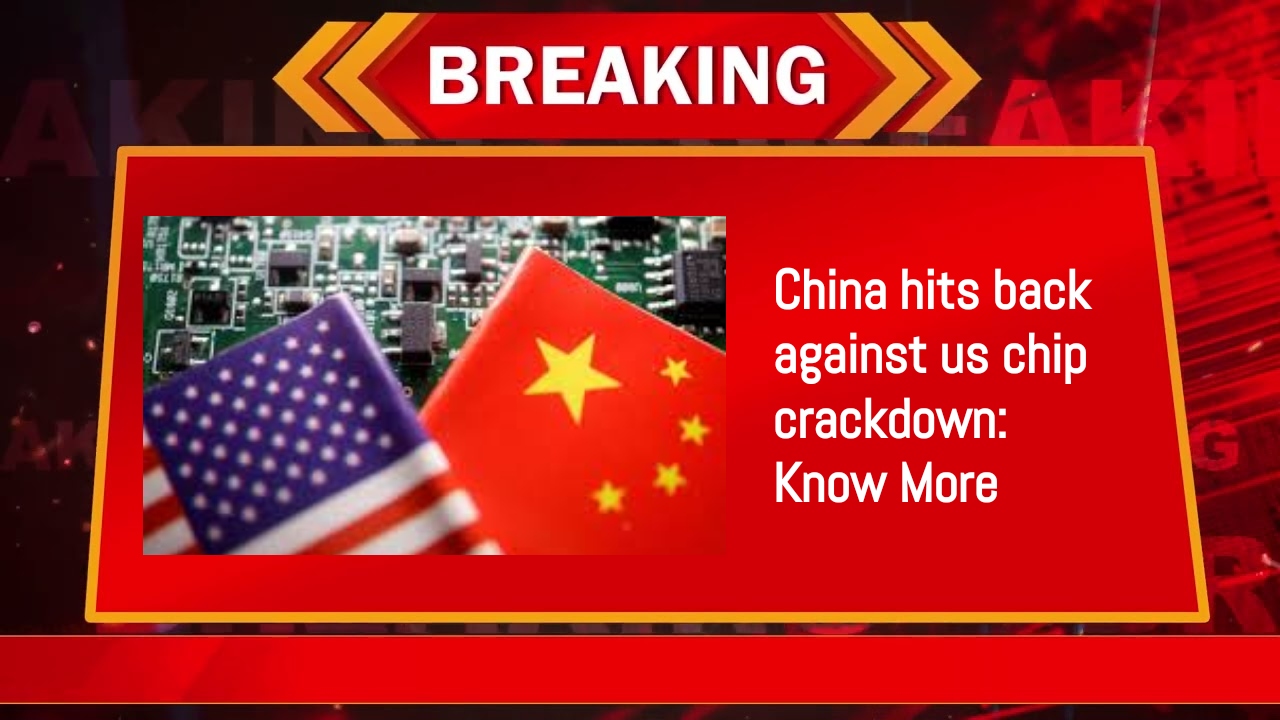China Strikes Back: Bold Move Against U.S. Chip Crackdown – What You Need to Know
A day after Washington’s most recent assault on China’s chip industry, China has escalated trade tensions by banning exports of the vital minerals gallium, germanium, and antimony to the United States.
These minerals have numerous military uses. The restrictions, which are exclusive to the US market, tighten enforcement of the current export restrictions on vital minerals that Beijing started implementing last year.
Before US President-elect Donald Trump takes office next month, this is the most recent escalation of trade hostilities between the two biggest economies in the world.
The export embargo was justified by national security concerns, according to a Chinese Ministry of Commerce order on dual-use commodities, which have both military and civilian applications.
The directive, which is effective immediately, also mandates that graphite products shipped to the US undergo a more stringent end-use examination.
While germanium is also utilized in solar cells, fiber optic cables, and infrared technology, gallium and germanium are utilized in semiconductors. Graphite is the greatest component by volume in batteries for electric vehicles, while antimony is utilized in bullets and other weapons.
The action has raised further worries that Beijing may target more vital minerals in the future, including those like nickel and cobalt that are used even more widely.
A White House spokeswoman stated without providing specifics that the US was evaluating the new limits but will take “necessary steps” in response.
A request for comment was not immediately answered by Trump’s aides. Although the US was the fourth and fifth largest markets for wrought and unwrought germanium and gallium in the world, respectively, a year ago, Chinese customs data indicates that no exports of these minerals have been made to the US this year through October.

Following Beijing’s decision to restrict its exports, China’s total October shipments of antimony products fell 97% from September.
Increased retaliation Separately, on Tuesday, a number of Chinese business associations urged their members to purchase semiconductors made in their own country, with one claiming that US chips were no longer dependable or safe.
The impact
Their recommendations may have an impact on US chipmakers Nvidia, AMD, and Intel, who have continued to sell their goods in China in defiance of export restrictions.
A request for comment from the news agency Reuters was not immediately answered by the three companies. Together, the associations have 6,400 members and represent some of China’s biggest industries, such as semiconductors, telecommunications, the digital economy, and automobiles.
The declarations, which were made soon after one another, omitted any explanation for why US chips were dangerous or untrustworthy.


Comments are closed, but trackbacks and pingbacks are open.